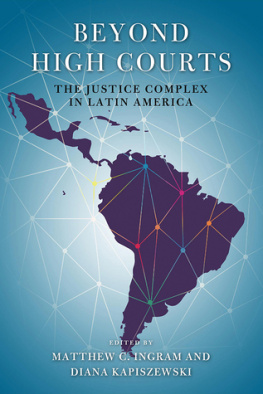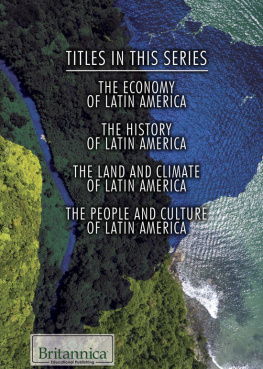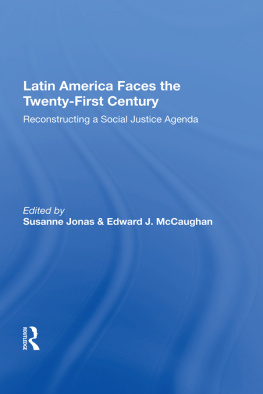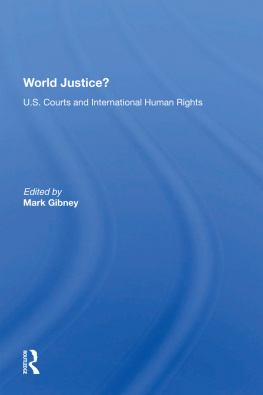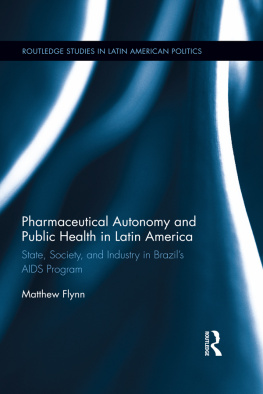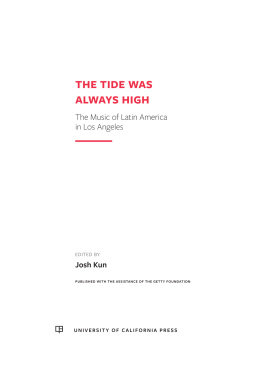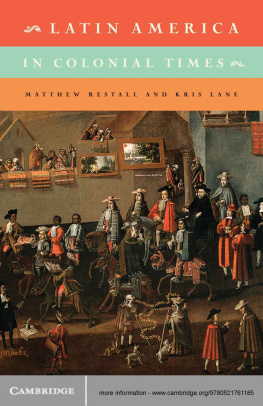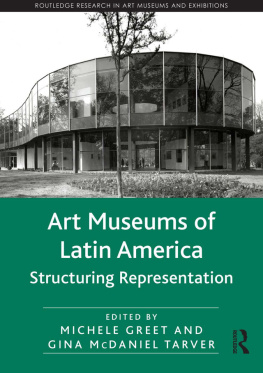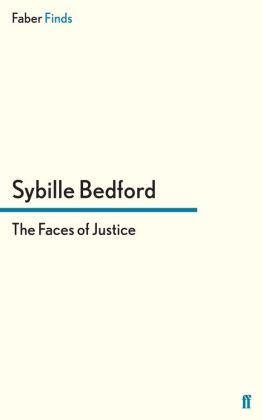RECENT TITLES FROM THE HELEN KELLOGG INSTITUTE SERIES ON DEMOCRACY AND DEVELOPMENT
Paolo G. Carozza and Anbal Prez-Lian, series editors
The University of Notre Dame Press gratefully thanks the Helen Kellogg Institute for International Studies for its support in the publication of titles in this series.
Srgio Buarque de Holanda
Roots of Brazil (2012)
Ignacio Walker
Democracy in Latin America: Between Hope and Despair (2013)
Laura Gmez-Mera
Power and Regionalism in Latin America: The Politics of MERCOSUR (2013)
Rosario Queirolo
The Success of the Left in Latin America: Untainted Parties, Market Reforms, and Voting Behavior (2013)
Erik Ching
Authoritarian el Salvador: Politics and the Origins of the Military Regimes, 18801940 (2013)
Brian Wampler
Activating Democracy in Brazil: Popular Participation, Social Justice, and Interlocking Institutions (2015)
J. Ricardo Tranjan
Participatory Democracy in Brazil: Socioeconomic and Political Origins (2016)
Tracy Beck Fenwick
Avoiding Governors: Federalism, Democracy, and Poverty Alleviation in Brazil and Argentina (2016)
Alexander Wilde
Religious Responses to Violence: Human Rights in Latin America Past and Present (2016)
Pedro Meira Monteiro
The Other Roots: Wandering Origins in Roots of Brazil and the Impasses of Modernity in Ibero-America (2017)
John Aerni-Flessner
Dreams for Lesotho: Independence, Foreign Assistance, and Development (2018)
Roxana Barbulescu
Migrant Integration in a Changing Europe: Migrants, European Citizens, and Co-ethnics in Italy and Spain (2019)
For a complete list of titles from the Helen Kellogg Institute for International Studies, see http://www.undpress.nd.edu
BEYOND HIGH COURTS
The Justice Complex in Latin America
EDITED BY
Matthew C. Ingram and Diana Kapiszewski
UNIVERSITY OF NOTRE DAME PRESS
NOTRE DAME, INDIANA
University of Notre Dame Press
Notre Dame, Indiana 46556
undpress.nd.edu
Copyright 2019 by University of Notre Dame
All Rights Reserved
Published in the United States of America
Library of Congress Cataloging-in-Publication Data
Names: Ingram, Matthew, editor. | Kapiszewski, Diana, editor.
Title: Beyond high courts : the justice complex in Latin America / edited by Matthew C. Ingram, Diana Kapiszewski.
Description: Notre Dame, Indiana : University of Notre Dame Press, 2018. | Series: Kellogg Institute Series on Democracy and Development | Includes bibliographical references and index. |
Identifiers: LCCN 2017035327 (print) | LCCN 2017036540 (ebook) | ISBN 9780268102838 (pdf) | ISBN 9780268102845 (epub) | ISBN 9780268102814 (hardback) | ISBN 0268102813 (hardcover)
Subjects: LCSH: CourtsLatin America. | Justice, Administration ofLatin America. | BISAC: LAW / Comparative. | LAW / Courts. | HISTORY / Latin America / General.
Classification: LCC KG497 (ebook) | LCC KG497 .B49 2018 (print) | DDC 347.8/01dc23
LC record available at https://lccn.loc.gov/2017035327
This paper meets the requirements of ANSI/NISO Z39.48-1992
(Permanence of Paper).
This e-Book was converted from the original source file by a third-party vendor. Readers who notice any formatting, textual, or readability issues are encouraged to contact the publisher at
CONTENTS
FIGURES AND TABLES
Figures
Tables
CHAPTER ONE
INTRODUCTION
Beyond High Courts
Matthew C. Ingram and Diana Kapiszewski
This volume seeks to move the collective conversation and research agenda of comparative judicial politics beyond the study of high courts by offering theoretically and conceptually grounded empirical analyses of a set of critical supranational, national and subnational justice sector institutions. Aimed at students of comparative legal institutions while simultaneously offering lessons for practitioners charged with designing such institutions, the volume analyzes justice sector institutions that are generally neglected in the literature, pursuing conceptual and theoretical insights to advance our understanding of the design of these justice institutions, how their form and function change over time, what causes those changes, and what consequences they have. Further, the volume examines how justice institutions function as a system, exploring institutional interactions across branches and among levels of government (subnational, national, supranational) and analyzing how they help to shape, and are shaped by, politics and judicial politics. Incorporating these institutions into the comparative judicial politics research agenda deepens our understanding of justice systems and how their component institutions can both bolster and compromise democracy and the rule of law.
The book takes on these challenges in a specific context: Latin America. While most chapters examine one or more of the regions large federal systems (Argentina, Brazil, Mexico, and Venezuela), the book also considers Chile, as well as the main supranational tribunal in the region, the Inter-American Court of Human Rights (IACtHR). The volume seeks to open a North-South dialogue on these crucial issues: written by a mix of scholars from the United States and Latin America, the volume represents an unusual meeting of the minds that transcends borders, bringing vital institutions to life in an analytically rigorous way.
The rest of this chapter introduces our efforts in more detail. The next section discusses the empirical and theoretical gaps in the existing literature on comparative judicial politics that motivated this volume. Subsequently, we map the empirical terrain, explaining why the volume centers on Latin America, why it focuses on formal institutions, and why it explores the particular institutions it does. The fourth section discusses the empirical, conceptual, and theoretical benefits of studying the range of institutions that compose the justice complex. On the one hand, the conceptualization and measurement strategies that have been developed in the study of high courts may be useful for analyzing other justice sector institutions; on the other hand, the theories we have generated to explain key phenomena of interestfor instance, the empowerment, behavior, and independence of high courtsmay travel less well to other institutions, suggesting the broader justice complex represents fertile ground for theoretical development. The fifth section offers a brief overview of the volumes empirical contributions, although references thereto can be found throughout the chapter. We conclude by issuing a call to scholars of comparative legal institutions to embark upon studies of these other crucial institutions of justice and by suggesting some directions for future research.
COMPARATIVE JUDICIAL POLITICS: THE SHAPE OF THE SCHOLARSHIP
Once of peripheral empirical and theoretical concern, comparative judicial politicsthe comparative study of courts and their involvement in politics and policy makinghas received increasing attention from a wide range of scholars since the turn of the twenty-first century. This is particularly true in the discipline of political science. Of course, a focus on institutions is nothing new for the discipline. Before the behavioralist turn in the 1950s and 1960s, law and formal institutions were staple objects of inquiry in political science analysis of the United States. Most studies, however, examined constitutional institutions and had a historical, descriptive, or abstract emphasis (Murphy and Tannenhaus 1972, 13; Whittington, Kelemen, and Caldeira 2008, 46). The institutional analysis that had taken off by the 1990s was quite different from that of the previous era: institutions were being studied in a more nuanced, more sophisticated, and more meaningful way. This new breed of scholarship is marked by an appreciation that institutions (in their guise as organizations) are populated by people with preferences; that how they function is shaped and constrained by a range of factors; and that they both reflect and affect politics, and both empower and constrain political actors (Hall and Taylor 1996). At least as important, the

